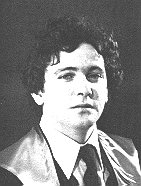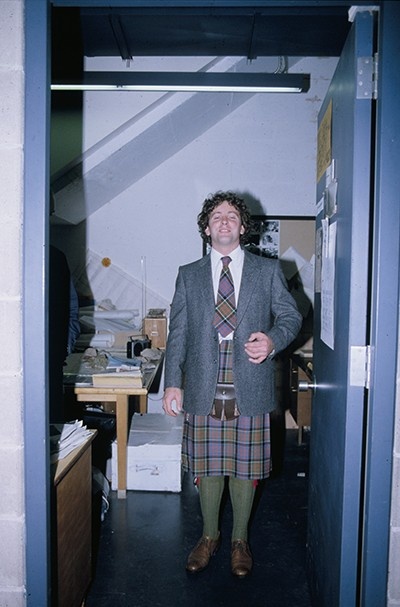Michael A. McDonald


Mike's thesis defence garb.
How can you tell if he is a MacDonald?
M. Sc. Thesis
The Mineralogy, Petrology and Geochemistry of the Musquodoboit Batholith
(PDF - 107 Mb)
The Musquodoboit batholith of southwestern Nova Scotia is a massive post-tectonic granitoid intrusive which was emplaced into the regionally deformed and metamorphosed Meguma Group metasedimentary rocks by a passive stoping mechanism. Contact-related features (i.e. schlieren banding and phenocryst dykes) occur in central portions of the batholith and indicates that the present level of erosion is near the roof of the batholith in several localities. The batholith is comprised primarily of medium- to coarse-grained monzogranite rocks which enclose two small (approx. 1 km2) porphyries and numerous dyke rocks.
All rocks contain quartz, alkali feldspar, plagioclase, muscovite and biotite (with the exception of some leucocratic dykes). Primary magmatic cordierite is a major constituent in most monzogranite rocks and is also occurs in some leucocratic dyke rocks. The presence of primary magmatic garnet and andalusite constrains the pressure of emplacement and crystallization to between 3 and 4 kb (i.e. 11.5-15 km).
Major element chemical analyses indicate that the various rock types in the Musquodoboit batholith are peraluminous (i.e. Al2O3/Na2O+CaO+K2O 1) and are representative of a comagmatic suite which formed by magmatic differentiation. Compositions resemble those of the South Mountain batholith, however, higher concentrations of Al2O3, Na2O and P2O5 and lower concentrations of FeOtot, MgO and CaO characterize the Musquodoboit batholith. Trace element data supports magmatic differentiation, however, the decrease in 8REE, Th/U and K/Rb from monzogranite to dyke rocks indicates that fluid stripping by hydrothermal fluids also occurred.
Various field, petrographic and geochemical data yield equivocal estimates regarding the economic potential of the Musquodoboit batholith.
Keywords:
Pages: 209
Supervisor: D. B. Clarke



